What is it that’s forcing you to consider quitting coaching sports? Is it the helicopter parent, the disrespectful kids or the unsupportive league manager? Or, are you simply exhausted by putting countless hours into mentoring kids only to receive dirty looks coupled with little to no compensation?
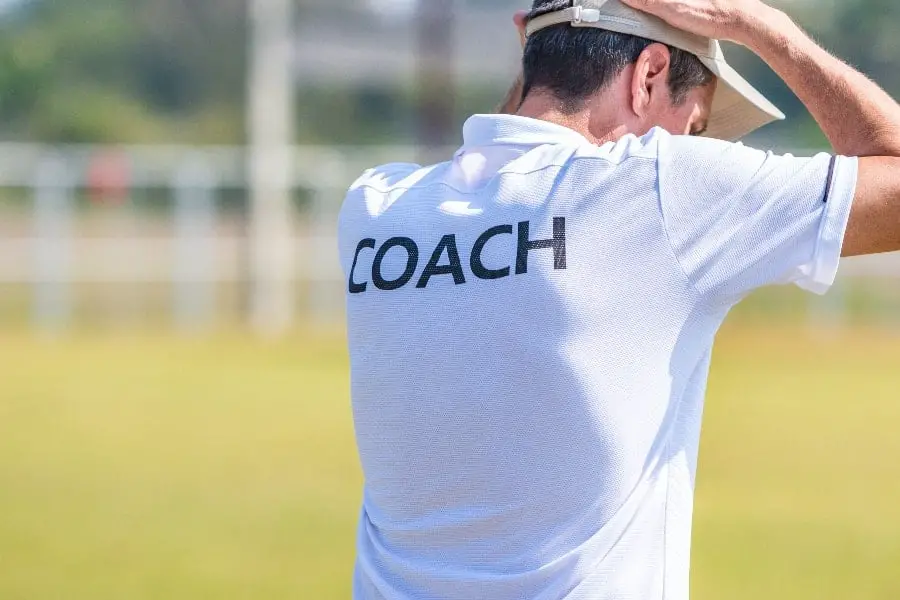
When to Quit Coaching Sports? If your health is suffering, you’re starting to feel disconnect in your own family and you are thinking more about the athletes parents and association leaders than the kids themselves, it could be time to quit coaching sports.
Knowing when to stop coaching sports is hard. Do you “quit while you’re ahead” or do you stick it out hoping the situation will improve back to what it was like when you started? This post will detail the potential reasons why your sports coaching career may have run its race whilst also offering solutions and alternatives to quitting coaching sports altogether.
You Stop Caring So Much About the Kids
Isn’t this what coaching sports is all about? The kids.
Didn’t you sign up for a sports coaching position to see kids improve and develop both on and off the field?
The moment you start to feel like your interest is wavering and you’re putting kids in the “too hard basket”, it’s time to think long and hard about why that is and what you can do about it before throwing in the towel.
Is it their parents encouraging them to behave in a particular way that you’re struggling to comprehend?
Is it that the child has an unsupportive family life leading them to misbehave and act out at practice and games?
Or is the pressure put on these kids from their school, parents, the club and their friends zapping away the enjoyment of coaching sports?
If you are having to pull yourself off the couch and into the car before each and every session, it could be time to call it quits.
Solutions and Alternatives to Quitting
- Focus on making practice fun. Demonstrate new team-based drills that involve minimal sitting that come with fun incentives.
- Involve the kids. Ask the athlelts to pick different drills and allow them to take an active role in what they want to do at practice.
- Voice your concerns. Talk to your spouse/partner, the club, a mentor and your assistant coaches and come up with strategies to make sport fun and enjoyable again.
- Get a pen a paper and write down three reasons why you started coaching sports. Then work out ways to put these reasons into practice.
Related post: What are the Responsibilities of a Youth Sports Coach?

The Parents
Are the obnoxious parents coaching from the sidelines really starting to distract you from the game and the kids?
Related post: Obnoxious Youth Sports Parents: Your Role As Coach
Is the high pressure, low supportive environment you know these kids are living with becoming just too much to bear?
Or is the lack of thanks and appreciation shown by these parents after practice and at the conclusion of a game making you reconsider why you’re waking up at 6.30am every Sunday morning for practice and games?
Youth sports coaching is supposed to be about the kids. It’s supposed to be about kids learning new skills, understanding the meaning of competition and developing life lessons about sportsmanship, respect and supporting a buddy whether they are up or down. But when did this shift?
When did the need to create terms like “helicopter parent” and “lawnmower parent” happen?
If you’re having to focus more time on pleasing the parents instead of their kids in regards to playing time, special training, leadership positions and prioritizing in general, it’s time to think about what’s youth sport all about.
Can you continue to do the job as a coach with theses parents buzzing in your ear? Could you address the situation with them to see if it brings about change?
It makes me sad, actually angry is probably a much better verb to highlight, that this is one of the big reasons why youth sports coaches stop doing what they love.
“Overall, parents are having a significant—and usually negative—impact on coaches in high school sports”.
USA Today High School Sports
I wish I had the magic phrase or course of action which can make this whole overbearing parent thing disappear, but I don’t. You can try and hold early expectation meetings, set boundaries for when you accept feedback, play kids evenly and even smile a lot, but even this approach won’t please everyone. The bickering and bad looks after the 6-year-old little league game loss can still continue.
Related post: What are the Challenges of Coaching Youth Sports?
The data shows that coaches feel more stressed and pressured by parents currently than ever before.
“This influx of parental misbehavior is rooted in parents’ desire to ensure their student-athlete is successful in their sport—and has the opportunity to compete at the college level”.
USA Today – Sports
So, when driving home from practice or a game, if you are thinking more about the parents than you are the kids it could be time to ask, do I want to continue in this environment?
Solutions and Alternatives to Quitting
- Delegate jobs and involve the parents. Sporting clubs always need a helping hand in the canteen, on the entry door, cleaning, organizing fundraising events, bringing snacks to a game and washing the uniforms and towels. These jobs could help shift their attention away from you and more on their task. Hopefully, they will start to understand sport is more than just winning.
- Hold expectation meetings at the start and middle of the season if need be. But be prepared to listen without retaliating because they most definitely will have feedback on your performance. Take it in and consider what’s being said.
- Continually remind yourself you are doing this for the kids and not for their parents. Write it inside your coach’s book if you need a reminder.

Coaching is Becoming Your Priority, Not Your Family
How many hours do you spend coaching your youth sports team in comparison to the hours you spend at home?
How many times have you sat around the kitchen table and enjoyed a home-cooked meal with your family, free from cell phones or the TV, listening to everyone’s day in the past month?
How many outings or small vacations have you enjoyed with your family that didn’t involve any sport whatsoever in the year?
Finding the right balance between your home life and coaching a sports team is, as some would argue…impossible.
Between the multiple practice sessions, weekly (or sometimes twice weekly) games, tournaments and fundraising events it’s easy to see how it takes over, disrupting the equilibrium.
Most sports coaches won’t understand or even realize this is a problem until something bad happens and they are forced to reconsider their situation. Your partner/spouse may become disconnected, your kids at home may rebel and your job performance may start to decrease.
While some do balance the two extremely well, as you may have for years and years, it might come a point where something has to give. Changes need to be made to preserve and honor your position within your home life.
If you let your job as a youth sports coach take over, it will. But will you allow it to continue?
Solutions and Alternatives to Quitting
- Book in a regular “date night” with your partner or spouse. This is easy if you have set training times and a regular work schedule but it can become a little tricky if they work irregular hours, but it’s not impossible.
- Make an effort to be home for dinner when possible. Once at home sitting at the table, have a “no phone at the table rule” including yours and the TV must be off, not simply on mute. If this is a bit strange, just go with it. Your family will get used to it soon enough and will learn to love it.
- Listen to your spouse/kids even when they are not saying anything. What is their body language trying to tell you? Are they quite? Are they ignoring you? Have they stopped showing you things and telling you about their day?
- Book a trip, even if it’s just overnight. Find a hotel near something fun like a waterpark, a river with canoes or even a public show exhibiting something interesting and make a weekend out of it. Tell everyone to pack a bag and get into the car because you want to take them somewhere!
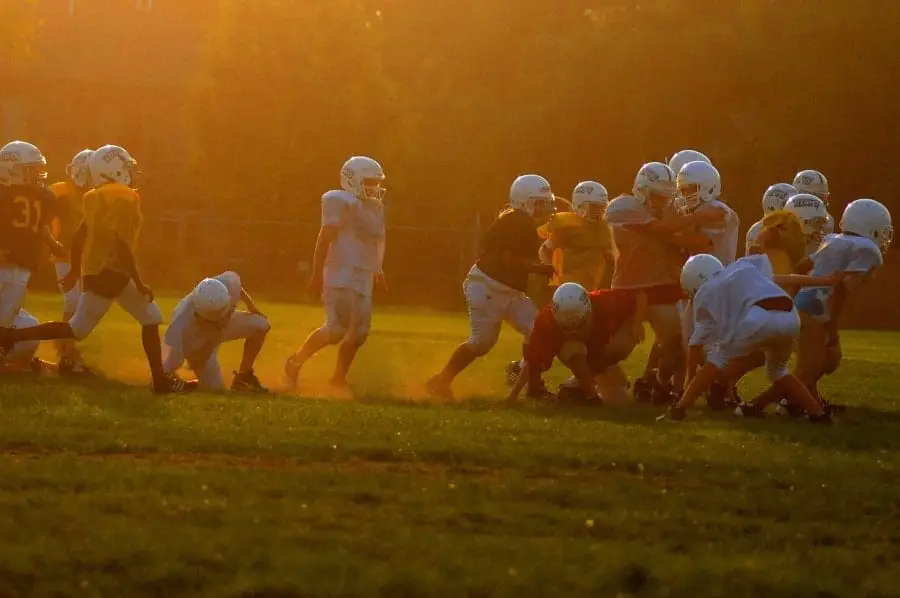
Your Health is Suffering
…stressed
…can’t sleep
…getting sick
I thought sports coaching was supposed to be fun?
You probably haven’t had time, or given it time, but take a second to think about your health.
How are you sleeping? Are you waking up in the middle of the night more and more and can’t get back to sleep? Are you tossing and turning worried about that kid’s playing time and that other kid’s vocal dad who won’t get off your back?
How’s your weight? Are you needing to wear your sweatpants because your jeans don’t fit anymore? Or are you needing to punch in a new hole to your belt because you’ve lost too much weight due to stress?
Can you remember the last time you cooked a meal at home with actual vegetables and drunk water instead of something stronger?
While your life is more than just coaching sports and this stress could be coming from other places, coaching can be a big contributor to the downward spiral in your health.
The fear and pressure of not keeping up with a sports culture can be crippling.
We are not wired as human beings to be angry, stressed and frustrated all the time. Our heart hates this constant state of tension and fear leading to high blood pressure, weight gain and… you can fill in the blanks.
Solutions and Alternatives to Quitting
While gaining a few pounds and losing a few night’s sleep due to the stress of coaching is not a clear reason to give it up, take it as a clue that changes should at least be considered.
Think about the following:
- Can you hold one or two fewer trainings a week and instead spend it resting at home with your family?
- Do you need to participate in four tournaments a season or is three enough?
- Can you gain support and guidance from an assistant coach instead of wearing all the stress and burden yourself?
- Can you start listening to your own advice about healthy eating and exercise you give to your team?
- Can you obtain a health plan from your doctor with advice about healthy eating, recommended exercise and how to look after yourself properly? It’s okay to ask for help.
“It is health that is real wealth and not pieces of gold and silver”.
Mahatma Gandhi
The Kids Are Uncoachable
It is good to have dreams and aspirations, particularly in your youth. I know as a kid I pictured myself competing in the Olympics just like my Australian swimming hero, Susie O’Neill.
But not for long. I didn’t have to look very far around the pool to see I was much slower and less “naturally talented” than the other kids in my squad.
But it seems it takes the kids or should I say their parents, much longer these days to realize they are actually never going to be the next LeBron James.
The “I am already the best” mentality makes it incredibly difficult for sports coaches to have a meaningful impact.
I remember when I started coaching, a mentor of mine said;
“all you want is for a hardworking, nice, passionate, coachable kid”.
But where have these kids gone because there doesn’t seem to be too many around?
The ones I see want the best gear, they only want to play one sport even at 7 years old, they talk about performing for the “scouts” instead of how they can be a good teammate and they don’t think it’s necessary to shake hands after a game.
If you’re nodding your head thinking, “that’s what my team looks like”, you have two options. You can continue to try and mentor these kids, showing them the true meaning of playing sports. Or, you pass on this team to the next eager, passionate coach and watch what happens.
There is only so much you can do for these kids in the time you have available. I know you want to help guide them and mentor them but you’re not their parent and you only have so much “pull.”
Solutions and Alternatives to Quitting
- Put the kids with the “big personalities” in charge of demonstrating a drill. Giving them more responsibility can keep them focused and determined. It also gives them the chance to understand what it feels like a “coach” a drill and why teammates matter.
- Modify your coaching technique. Start to involve varied equipment, video and other specilized coaches into your practice to keep things interesting.
- Invite a sports professional to practice. I will never forget a youth coach of mine invited an Australian Basketball Professional to talk to us about sportsmanship, resilience and what it means to work hard. This session was unforgettable for me and I highly recommend organizing something similar for your team.
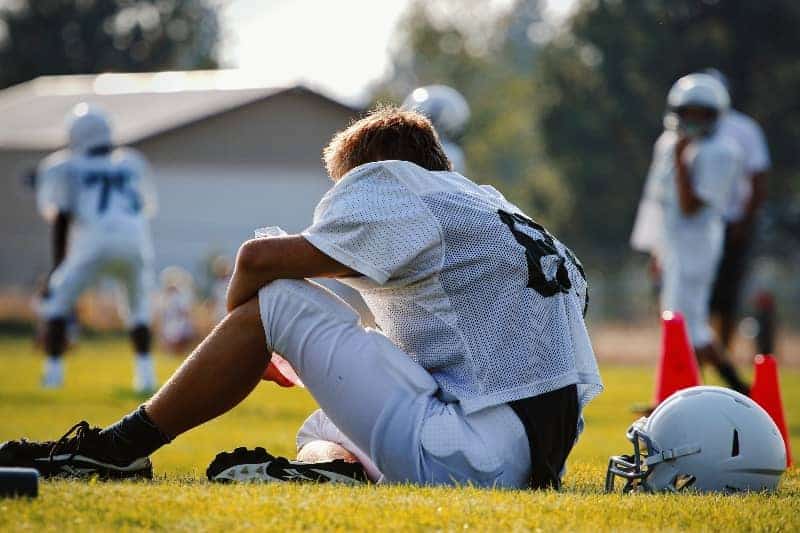
You’re Bored and Unmotivated
When we no longer feel challenged we get bored.
Maybe the competition is not stimulating, maybe your assistant coaches are not innovative and are simply “yes man,” or maybe the kids are becoming so uncoachable, as I mentioned earlier, you have stopped caring so much.
This is making you feel like you’re simply going through the motions and ticking a box.
On the flip side, you might have become so comfortable in our own little bubble as you’ve purposely avoided situations that make you feel uneasy. You avoid talking to that parent or meeting the club president because you are nervous about the outcome or you know what’s going to happen and you don’t like it.
If you find you are bored and unmotivated even before a game, ask yourself why. Can you regain the love for the sport by reading books, watching videos, taking a course or observing other coaches? Or does the thought of that make you put your head into your hands and say, “that all sounds too much work?” If it’s later, it might be time to observe the team from the stands instead.
Solutions and Alternatives to Quitting
- Educate yourself. Buy a bunch of recommended sports books written about your sport and be a sponge for new drills, advice and tactics you could try on your own team.
- Use YouTube. Jump onto YouTube and get lost watching videos and documentaries about your sport. It’s a goldmine for inspiration and motivational thoughts.
- Attend coaches clinics
- Start listening to podcasts from coaches who have been in your shoes.
You’re Getting Frustrated Easily
Do you even recognize yourself as a coach anymore?
Who is that horribly loud person continually yelling at the 16-year-old kid umpiring your 7-year-old softball team? Oh, that’s me.
Who is that coach arguing with the score bench about forgetting to add on a score when you are already losing by 55 points and there is 3 minutes to go? Oh, that’s me.
And who is that coach screaming wildly at their players on the final day of the tournament when it’s 90 degrees to “run harder?” Oh that’s me too.
Youth sports teams need passionate, dedicated people driving them to help motivate the kids to stay playing sports, but these same people need to show control and class when things don’t go their way.
If you find you are “snapping” at the kids, parents, officials and even your own family, again ask yourself why. Is it the lack of sleep because of stress? Is it the pressure to perform and “keep up with the Joneses” or is it something else?
Can you see a way of controlling these emotions while remaining a sports coach or is it time to give it away?
Solutions and Alternatives to Quitting
- Learn to meditate, or take up boxing. You need to find a healthy, productive way to express how you feel. If that’s sitting in a dark room, cross-legged with your eyes closed than good for you. But if it’s punching a boxing bag until you can feel your heart pounding in your chest then that works too.
- Uncover the cause. Walk around the block or sit quickly with a note pad and pen, or the notes section in your phone and tease out why you are feeling like this. It’s amazing how differently you will start to see something with a different lens.
Related post: Is Youth Sports Too Intense? A Message For Our Coaches
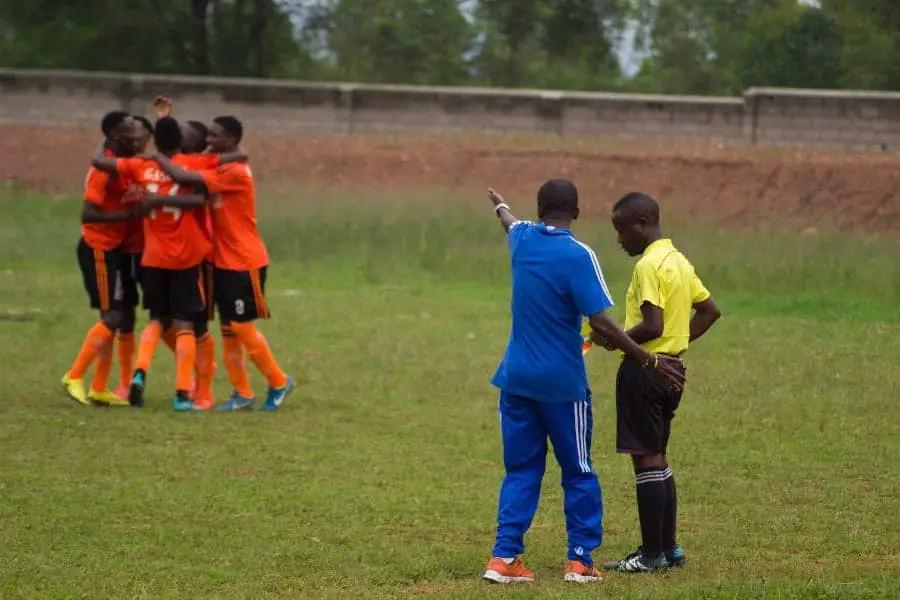
You Are Not Supported
If there is a problem with one of the kids or parents on your team, is there somebody who will call you back or at least return an email in a timely manner to discuss it?
If you want to speak to somebody about starting a second team because there are too many kids for only one team to allow even playing team, are they available?
If one of your players gets poached by another team, clearly in violation of the rules, will someone have your back?
Is your vision and coaching physiology supported? Is it ok to give kids even playing time, allowing for adequate rest? Can you participate in fewer tournaments over the year and instead focus on quality training sessions?
Sometimes as a youth sports coach it can feel like it’s you against the world (kids, parents etc.). To remain poised and motivated you need a soundboard. Somebody who can talk through different scenarios for the benefit of the child and not for money or how they are perceived by other clubs.
If you feel like you’re on your own and the clubs administrators are making your coaching life a miserable, you either accept it, leave to another club or stop coaching altogether.
Yes, things may have changed since you last started and people may have shifted around and not for the better, though your next decision needs to be for the good of the kids, yourself and your family.
Solutions and Alternatives to Quitting
- Talk to other coaches and get advice as to what they would do in your situation.
- Be upfront with the administers and ask “how did we get off on the wrong foot?” We are all adults here. See if you can uncover why there is a problem and how can you can all start moving in the same direction.
- Move clubs. This is not ideal as you are no longer coaching the team you may actually enjoy coaching, but this could be a good alternative if you can’t see another way out.

You Need to Make Extra Money
I once heard youth sports coaching being described as, “too much time, not enough money.”
I’m sure this person was already at level 10 on the frustrated, burnt out coaching scale but you get the idea.
For most, sports coaching doesn’t equal a big pay packet. But that’s probably not why you signed up in the first place, right?
However, there may come a time where the money actually becomes an important decider in your life. Do you keep coaching sports for free (or for very little) vs getting a second job to support your family?
This is a very real question you may need to ask yourself – even if you LOVE coaching youth sports.
Solutions and Alternatives to Quitting
- Can you set up private, one-on-one coaching sessions one or two nights a week and charge by the hour?
- Can you start a YouTube Channel coaching kids’ particular skills and receive income via advertising? Yes, this is a long term game but I’ve heard it’s a great way of making money and doing what you love.
Related post: How to Make Money Coaching Youth Sports

Can’t Take the “You Only Coach so Your Kids Get a Spot in the Team” Anymore
This point is specifically for parents who coach their own child, but I thought it was important particularly at a young age.
Not all people are good and fair in this world. Some people do pick their own kids, even if they are not the “best” and some do favor their kids over others with more playing time, equipment and “special treatment.”
But then there are others who started coaching their kids because there was nobody else putting up their hand or they know and love the game so much they thought they had wise lessons to give.
“Coaches don’t coach for selfish reasons, at least good coaches don’t”.
(source)
In either scenario, people talk. They say bad things and pick on others when something isn’t going their way. You are an easy target.
If you are sick of having to defend yourself in the position of coach and parent, aren’t you exhausted? I know it seems that quitting coaching sports is like “giving up” but it’s not. You have nothing to prove to these awful people with nothing better to do than comment on other people’s lives they know nothing about.
We recently published a post titled, When to Stop Coaching Your Child? 4 Signs You Must Know which might be helpful right about now.
Solutions and Alternatives to Quitting
- Remove yourself from coaching your child’s team and simply start coaching another team. This will logistically make traveling more difficult on game day and around practice sessions but, it is an option to stay in the game.
- Really think about what these parents are saying. Am I being unfair? Am I playing more kid more than the others? Am I giving them special treatment? Take a look at the stats sheet and talk to your assistant coaches honestly regarding your coaching technique without becoming agitated at the answer.
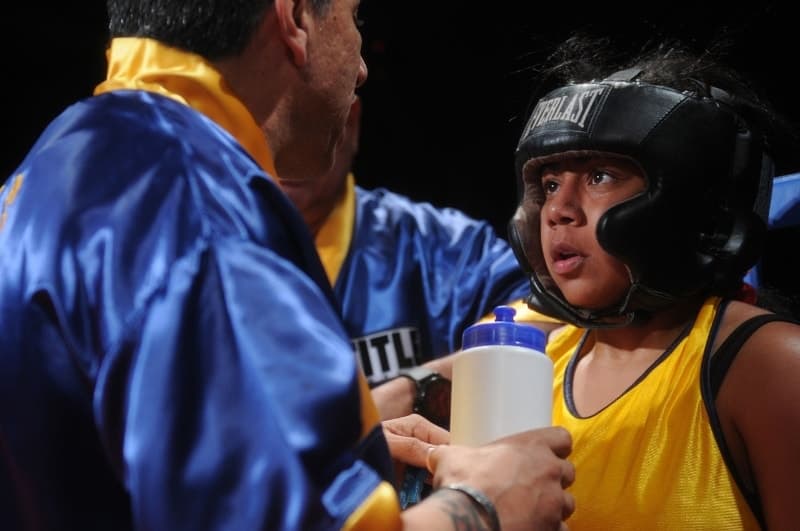
Summary: When to Quit Coaching Sports?
I know it seems like quitting is like giving up, a trait you have tried hard to instill as a bad thing as a sports coach.
But like all good things, coaching must come to an end too, well for most of the coaching population anyway.
Whether it is for the money, due to the uncoachable kids or the overbearing parents, it’s okay to hang up the whistle and say times up.
How did you know it’s time to quit sports?
Cheers,
Emma
